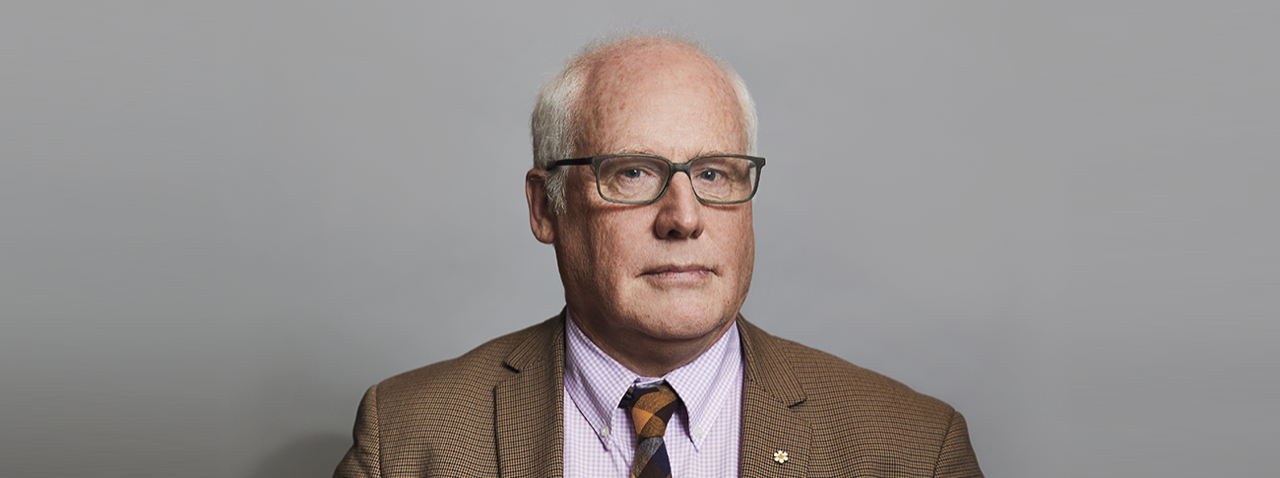
Alex Neve was Secretary General (SG) of Amnesty International Canada for two decades and is an Officer of the Order of Canada. He regularly takes part in human rights research and advocacy delegations throughout Africa, Latin America, Asia, the US and Canada. He speaks across the country, appears before parliamentary committees and UN bodies, and is a frequent media commentator. Alex has served on the Immigration and Refugee Board, taught at Osgoode Hall Law School and the University of Ottawa, been affiliated with York University's Centre for Refugee Studies, and worked as a refugee lawyer.
Neve addressed CAUT Council delegates last November, and spoke of seven “imperatives” uppermost on his mind.
“Amnesty International starts off its list of human rights imperatives with the environmental crisis. That is because while the climate crisis is obviously an environmental concern, it is equally and at the same time through and through, in every way possible, a grave human rights concern. At global level, the SG of Amnesty International, Kumi Naidoo, who in a previous role led Greenpeace International, puts it succinctly and starkly: there are no human rights on a dead planet.
My second imperative flows naturally from that overarching and all-encompassing concern about climate and the environment. It is the time to end tearful words of lament about Canada’s decades of failure to address pervasive, systemic and grave violations of the rights of Indigenous people; to move past stirring promises to confront and address that disgraceful and shameful history. Rather it is time to rise to the shared, collective responsibility we all have, every single one of us has, to advance true, rights-based reconciliation in Canada.
Third, global arms control; one of the most obvious obstacles to preventing mass atrocities is the world’s unbridled arms trade. That is why it matters so much that the UN adopted an Arms Trade Treaty in April 2013, bringing human rights rules to this deadly global commerce. Over six years later, a respectable 105 countries are on board, and finally, I can say this includes Canada. We were slow to get there, coming in at number 104, but finally acceded to this important treaty on June 19.
Fourth, protecting refugees: an estimated 65 million people have been forced to flee their homes worldwide, with approximately 22.5 million refugees and 42.5 internally displaced persons. There is much talk of a global refugee crisis, but the crisis is not the refugees, instead lying entirely in the despicable measures being taken by governments in response; with much more focus on restrictions, barriers and punishment than on compassion, safety and protection. Meanwhile, Canada seems to think we can rest on the laurels of our remarkable 2016 effort to resettle 45,000 Syrian refugees. Surely that is not where we should be standing at this moment in history.
My fifth imperative is upholding the equality rights of women and girls. By sheer numbers there is no denying that the deep inequality faced by women and girls is the most severe human rights challenge the world faces everywhere. Despite commitments to gender equality and safeguards for upholding women’s human rights, violence, inequality and marginalization continue to be the reality for women and girls the world over. The scale and nature of the abuses differs considerably, but there is no denying that it’s a concern everywhere, be it the Global North or South, within all religious, cultural and political traditions and in countries considered to be wealthy and those facing high levels of extreme poverty. I include Canada.
Sixth, we must defend the defenders to speak out. It should be mobilize, organize and speak out in defence of human rights. In so many ways, the greatest guarantor of human rights protection comes at the frontlines and the grassroots, right within our communities — when our sisters, brothers, neighbours, classmates, friends and we ourselves mobilize, organize and speak out in defence of human rights. Sadly, human rights defenders around the world are in peril. The measures vary — legal harassment, public demonization, threats, physical attacks and killings — but the message is the same; standing up for human rights carries a price.
We absolutely must reject insults, threats and attacks against human rights defenders, and make it clear that people everywhere are watching and concerned.
Seventh is the world of hate, polarization and contempt for human rights that I know is increasingly a preoccupation for all of us. This is not only about Donald Trump but about a growing rogues gallery that swells day by day, and about a phenomenon to which we are not immune. The hallmarks are similar across all of these situations: an ugly, fear-based form of populism; targeting refugees and migrants; vilifying LGBTQ2 communities; setting back women’s equality; and attacks against human rights activists, institutions and principles. We must, in response, stand up, speak out, push back — be that in the streets, in the courts, on social media. Challenge, resist, confront, overturn.”